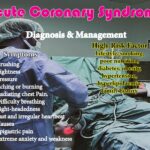Heart health – Quitting smoking is the single best thing you can do. Stopping smoking has huge benefits to protect the health of heart and it’s never too late to give up.
The risk to heart health decreases significantly soon after you stop smoking. Quitting smoking reduces smoking-related death by heart disease by half and is key in the management of atherosclerosis, blood clots and abnormal heart rhythms that contributors to heart attack. A person trying to quit must overcome two obstacles: a physical addiction to nicotine and a habit. Most people find a combination of resources works best. Many smokers do not quit on their first attempt, may need several tries to successfully quit. But the benefits are well worth it. Keep trying.
Tobacco Cessation quit lines:
1. Think about why you want to quit and know the benefits of quitting.
2. Pick a stress-free time to quit and ask for support and encouragement from family, friends, and co-workers.
3. Start doing some exercise or activity each day to relieve stress and improve your health.
4. Get plenty of rest and eat a balanced diet.
5. Join a smoking cessation program, or other support group.
6. Disconnect your activities of smoking and replace them with newer healthier activities.
Want to Quit Smoking?
Nicotine replacement products can help break a smoking habit and continue to give smokers nicotine to meet 

1. Nicotine chewing gum: A chewing gum releases small amounts of nicotine to help reduce nicotine withdrawal symptoms.
2. Nicotine patch is applied to the upper body once a day that releases a steady dosage of nicotine to help reduce the urge to smoke.
3. Nicotine inhaler or nose spray: A prescription nicotine replacement product that releases nicotine to help reduce withdrawal symptoms.
Medicines to help you quit smoking:
1. Bupropion: This is a non-nicotine option to help people stop smoking. Approved by the FDA, Bupropion help alter mood transmitters in the brain that are linked to addiction.
2. Varenicline: is a FDA approved non-nicotine pill to help quit smoking that targets the nicotine receptors in the brain, attaches to the receptors and blocks nicotine from reaching them. This decreases the desire for nicotine.
How to avoid Relapsing?
1. Don’t carry a lighter, matches, or cigarettes.
2. If you live with a smoker, ask them not to smoke around you. Hang out with non-smokers or go to places that don’t allow smoking, like the movies, museums, shops, or libraries. When you can, avoid places, people, and situations that you relate to smoking.
3. Don’t focus on what you are missing. Think about the healthier way of life you are gaining.
4. Drink plenty of fluids, but limit alcoholic and caffeinated beverages.
5. Exercises will help you relax. When you get the urge to smoke, take a deep breath. Hold it for 10 seconds and release it slowly. Repeat this until the urge to smoke is gone.
6. Don’t substitute food or sugar based products for cigarettes.
7. Eat low-calorie, healthful foods (such as carrot or celery sticks, or sugar free hard candies) or chew gum when the urge to smoke strikes so you can avoid weight gain.


Dr.N.Mariappan – Chennai
Consultant- Plastic surgeon
Ph: 9901043568
E-mail: drn_m@hotmail.com











